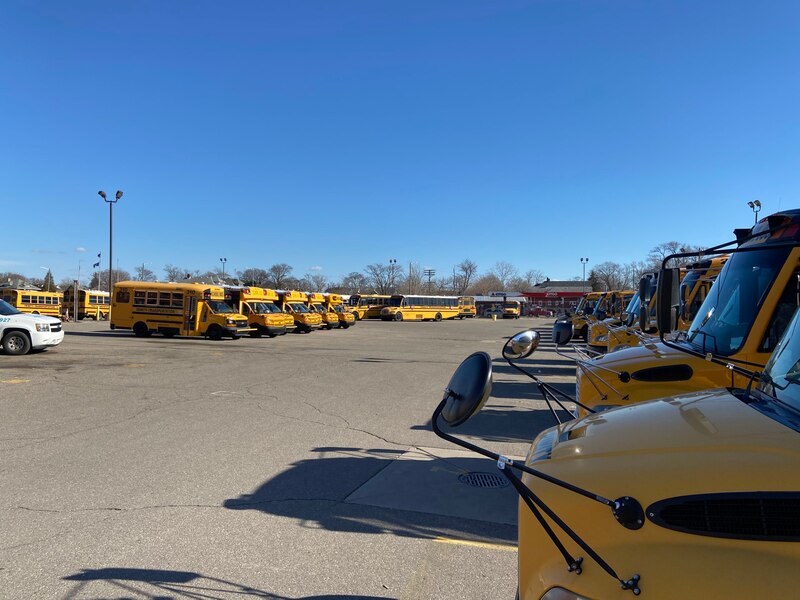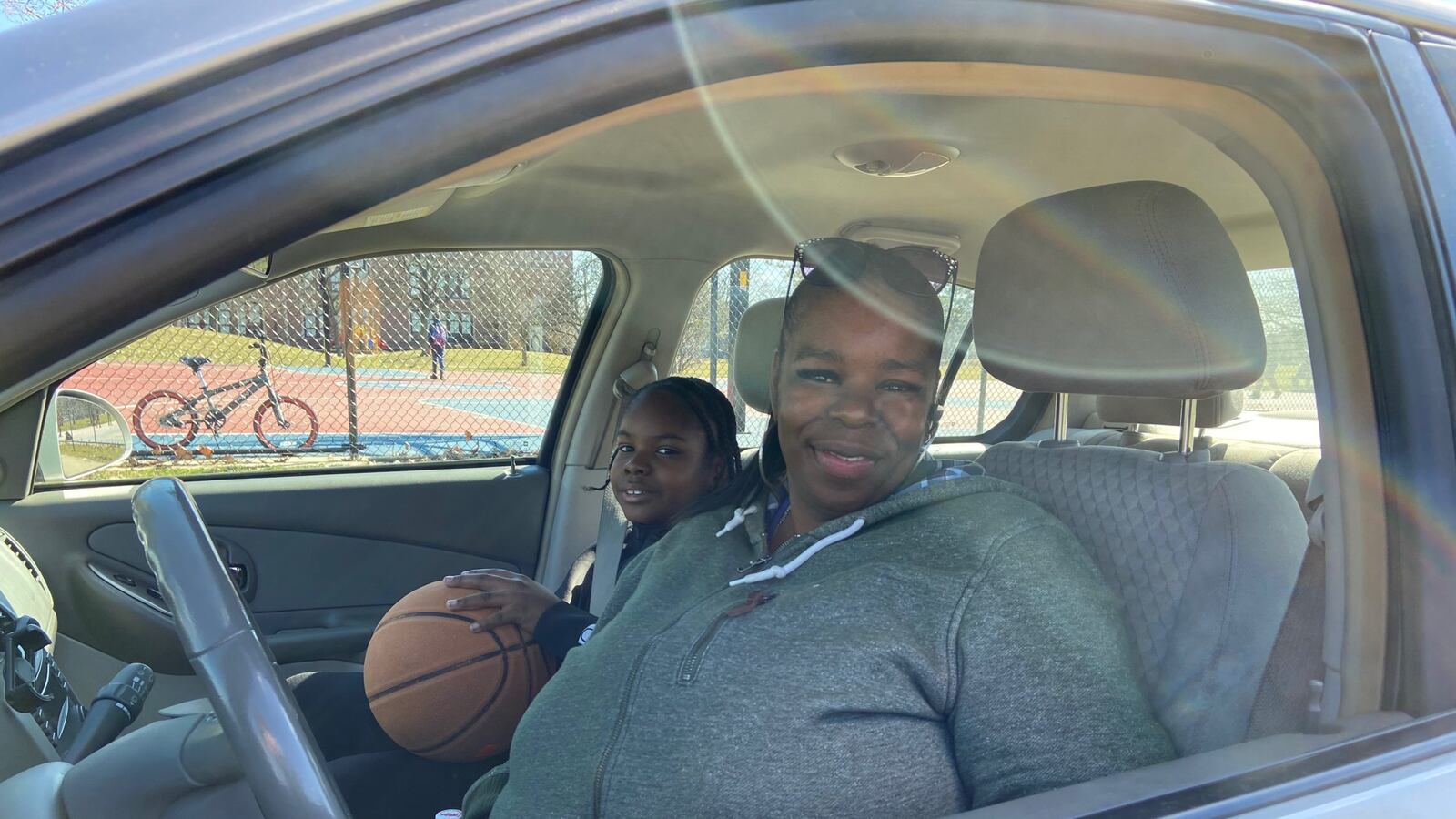The sun was high overhead on Friday afternoon, long before the end of the typical school day in Detroit, but 11-year-old Joshua Spann was on the basketball court with his friends.
School is out for the next three weeks across Michigan after Gov. Gretchen Whitmer ordered the closure of all K-12 schools from Monday through April 5.
Some schools, Spann’s Detroit charter included, opted to also close on Friday. That’s why Shelly Franklin, Spann’s grandmother, picked him up from a basketball court on Friday afternoon instead of from school.
Franklin’s family is lucky. For those who don’t have a grandmother on call, the widespread school closures represent their own emergency.
As the number of COVID-19 cases in Michigan hits 25, school districts across the state are rushing to limit the negative effects of school closures with online lessons to prevent learning loss and adjusted meal programs for children who depend on the nutrition they get at school.
But there is little districts can do for parents who suddenly find themselves facing an impossible choice between working and caring for their children.
The morning after Whitmer’s announcement, Dominika Shelton logged onto Facebook and spoke for many Michigan parents.
“I’m in desperate need of trustworthy child care,” she wrote, posting in one of many online groups that have popped up to provide information and resources on COVID-19.
Shelton, a clerk at a flower shop in Detroit, said in an interview that “it’s going to cost me wages” if her search proves unsuccessful. “I’ve got to work for my family.”
Casandra Ulbrich, president of the state board of education, said officials are discussing other solutions for families, including a temporary expansion of the federal food stamp program.
“It’s a difficult situation for many parents,” she said.
She added that employers can help families by giving their employees more leeway to take time off. “I would encourage any corporation that can to allow some flexibility for its employees,” she said.
There is a growing chance that the federal government will take on a major role in helping families, with House Speaker Nancy Pelosi announcing on Friday evening that she has reached a deal with the Trump administration that could include up to three months of paid family leave, two weeks of paid sick leave, and increased unemployment benefits. The measures would require approval from the Republican-controlled Senate.
“People who work in service industries, they don’t have the option to not show up for work,” said Oriana Powell, an organizer for the advocacy group Mothering Justice.
Powell went to the grocery store late Thursday evening to buy water, but found that most of the supplies were sold out. Then she got a text message saying that all Michigan schools would close.
As she checked out, a cashier got the word, too.
“She just started yelling,” Powell recalled. “’What am I going to do with my kids?’”
Erica Powell-Smith said she has asked friends and family for ideas, but by Friday morning, she’d had no luck finding help.
“We don’t really get paid leave like that. And if your job allows paid leave, it’s only maybe two or three days at a time,” said Powell-Smith, who works full time and whose child attends University Preparatory Academy. “Like, it doesn’t matter if it’s a pandemic or it’s just flu season.”
Powell-Smith, who is an Army veteran, is accustomed to tense situations. There isn’t a panic in her household, but so much is unknown.
“It leaves you in a position where we don’t really know what to do right now. We’re really trying to figure it out as the day goes on, so that we can at least have a plan for Monday,” she said.
Faced with the possibility of leaving work, some families are relying on informal networks of family and friends for support.
Nuola Akinde, an activist and parent based in Ypsilanti, helped form the Kekere Emergency Childcare Collective in response to the pandemic. In the group’s first 24 hours, she said she received more than 30 offers of childcare from people in the area, and 14 requests for child care assistance.
“People are already connecting with aunties and uncles and cousins and grandparents to get support,” said Akinde. “We’re trying to extend that network a little bit, so if everyone’s networks are stretched we can connect people with others who can help them with childcare in their neighborhood.”
She hopes the program will be up and running by Monday.
“People need help,” she said. “They’re worried about losing a week or two weeks of income.”
A.J. Bayi, a mother of three students at Cass Technical High School, had already planned to pull her children out of classes all next week. A project manager for Quicken Loans, she was allowed to work from home, and she was skeptical that her kids would be safe at school.
“I’m a parent. I don’t have to take my child to school. They’re not going to take me to jail,” she said. “My kid is going to be out next week. Deal with it.”
Bayi is not treating the time off as a vacation for her kids. They’re skipping out on family birthday parties to avoid being in large groups. She’s creating a meal plan for her family, evaluating the most essential items that they need.
She’s also telling her children to think of recipes to cook for the next three weeks. She’s avoiding big lines at major grocery stores and opting to go to the dollar stores and her local shop instead. And she’s adamant about keeping her kids productive.
“I told everybody that they have four hours of non-video games, non-TV, non-social work to do” to keep themselves busy.
Even for parents who can work from home or take time off, the coronavirus has posed challenges.
Angela Lugo-Thomas said the news has been weighing heavily on the mind of her oldest daughter, a Cass Tech senior. She was competing in an academic tournament in Grand Rapids earlier this week, but it was abruptly suspended over concerns about the new coronavirus. So she and her classmates had to return home early. Her daughter has been devastated ever since.
“You know, she was crying when she got home because this was her last year,” she said. “And so she’s been very sad and depressed … She kept saying to me … this is so unfair.”


